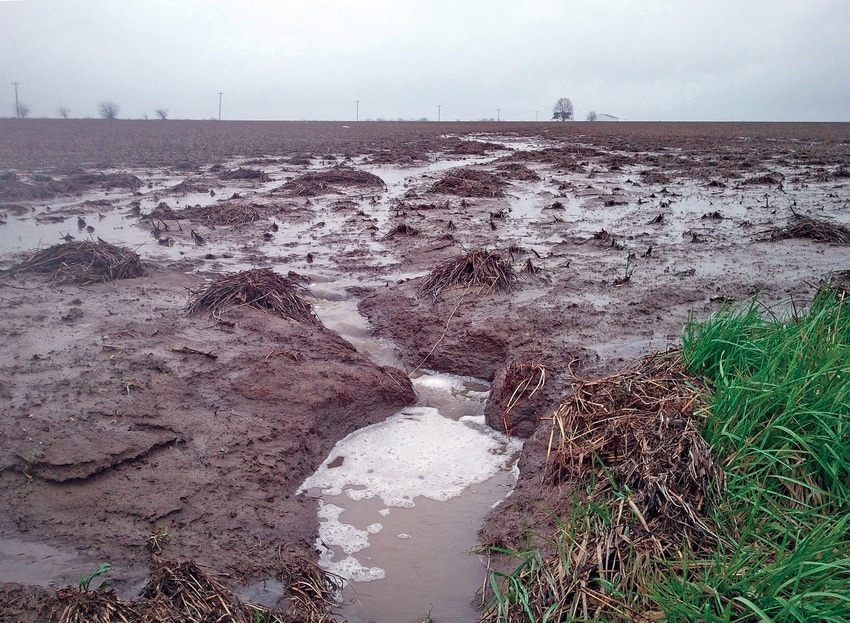June 27, 2013

The rains in the Midwest this spring have increased erosion in many areas. A University of Missouri soil scientist says the damage could have some serious impact on crops later this year.
“Even the untrained eye of citizens who don’t think about agriculture on a day-by-day basis can see the erosion on side slopes,” says Newell Kitchen, adjunct associate professor of soil science at MU’s College of Agriculture, Food and Natural Resources. “From the freeway between Kansas City and St. Louis, it doesn’t take much to see the scars of erosion that has taken place with the heavy water accumulation.”
Lousy weather put planters in perpetual time crunch
Kitchen, who is also a soil scientist for the USDA Agricultural Research Service, says rain has washed away quite a bit of sediment from fields, and there is very little crop in some of those areas.
“In addition to that, in foot slopes where crops were planted, the accumulated sediment has in some areas covered the plants, causing a loss of stand,” Kitchen says.
The rains delayed corn planting throughout the Midwest. Kitchen says that means a lot of producers had a narrow window of opportunity to plant.
“A big portion of the corn crop has been planted at just about the same time,” he says. “So if we were to hit a dry period at the same time that corn is pollinating, it could be catastrophic.”
Ag news delivered daily to your inbox: Subscribe to Delta Farm Press Daily.
Kitchen says the window for planting soybeans is still fairly wide. Wheat has kept erosion down and preserved moisture, so conditions could be favorable for double-crop beans.
You might also read:
Organization and technology crucial to manage 8500 acres
You May Also Like




